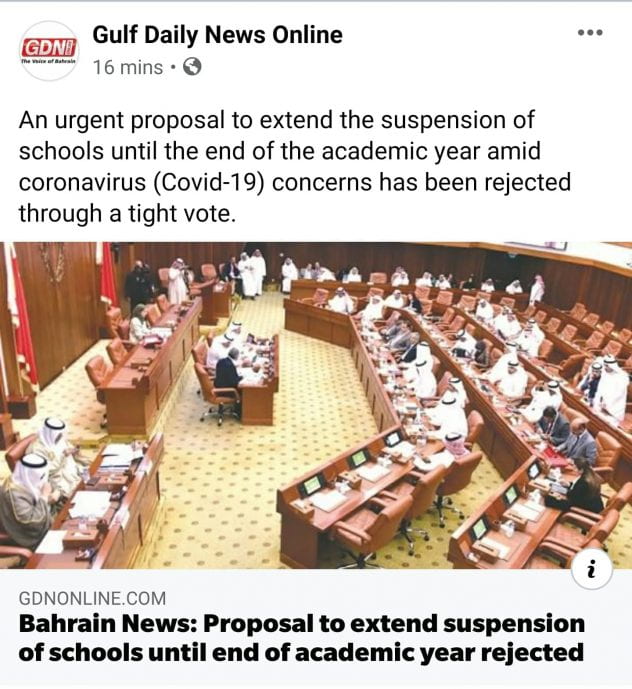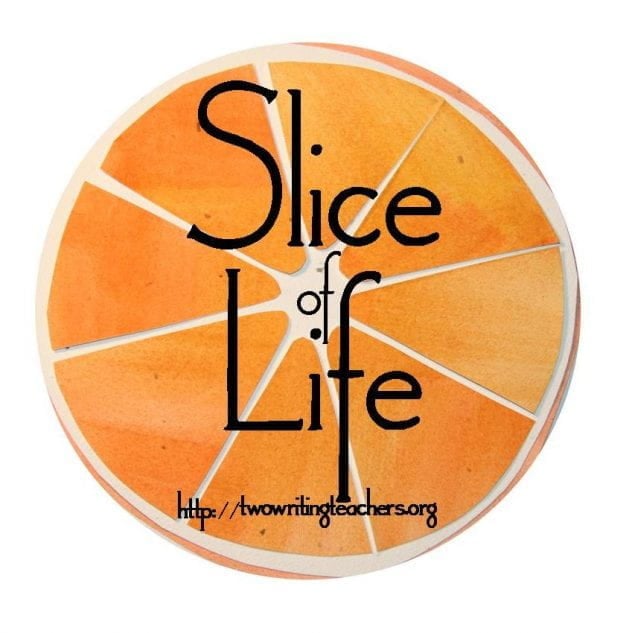
Before retiring to California in 2022, I lived in Bahrain. When we went there we took nine suitcases. When we came back eight years later, we had nine boxes and suitcases again. I’m guessing the contents of the suitcases had changed by about 80%. We brought home the painted map of Bahrain in the photo below. It hung in my dining room in Bahrain, and it graces our dining room in California now.
Learning to love tea in Bahrain was another joy I brought back to California, along with two tea pots and a dozen small tea cups–some of them gifts from friends. Every Sunday before church, I make myself a pot of tea (Something I used to do every Friday before church in Bahrain.)
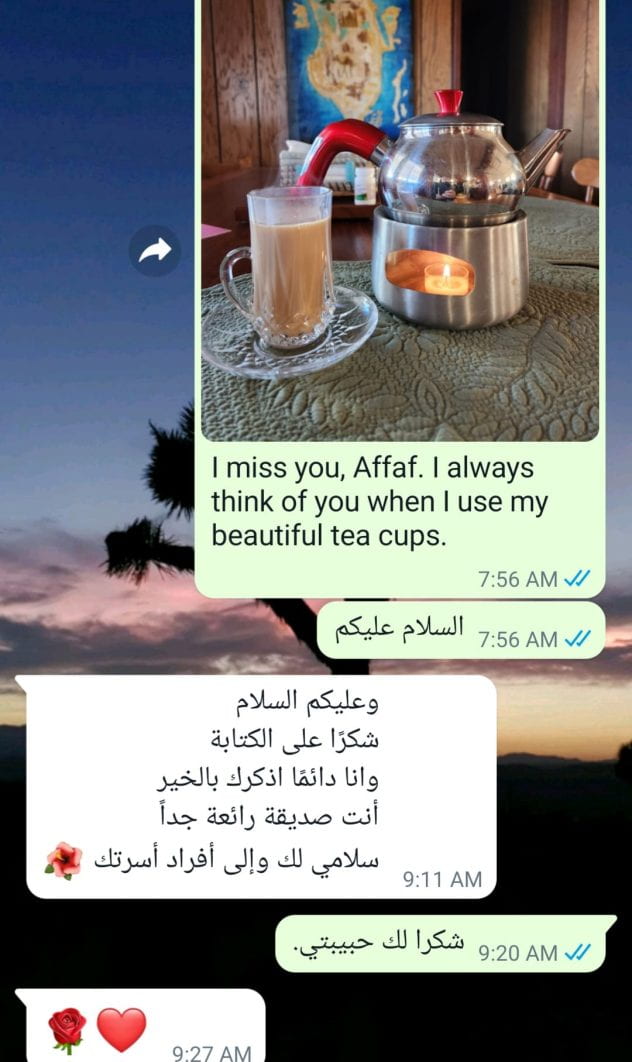
Affaf had given me a set of crystal tea cups and saucers, so I told her I was thinking of her. Affaf wished peace to me and my family, thanked me for writing, told me she thought of me and our good friendship. (Of course, Google Translate had to help me read that note.)
Another thing I grew to love in Bahrain was wearing perfume. I had never been much of a perfume wearer, except when I first got married and received a bottle of Lauren, which I wore daily. But living in the Middle East, perfume is a big deal. At the mall, workers stand outside perfume shops and spray samples generously. For Teacher Appreciation Week, I didn’t get coffee mugs but often would receive gifts of perfume and flowers. While I was there, I learned to spray perfume on every day. I left my Bahrain perfume behind, so when I got to California I didn’t have any perfume.
This past December, I added perfume to my Christmas wish list, and Katie and Thomas got me a fun gift from Sephora–a perfume sampler. There are 16 tiny bottles. I’ve been wearing perfume since Christmas.
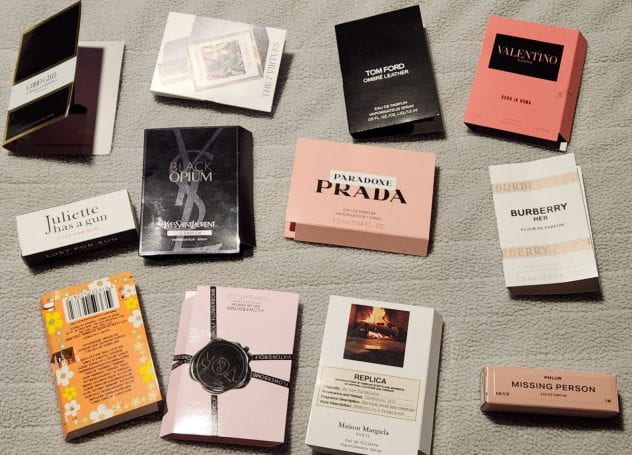
The best part, though. I get to choose a large bottle of the one I like best.

After awhile, I decided to do a proper tournament. The first round was easy because I had already separated the perfumes into ones I liked and ones that were so-so. I paired them up against each other.
Here is my March Madness, Perfume Edition.

Here are my final four:
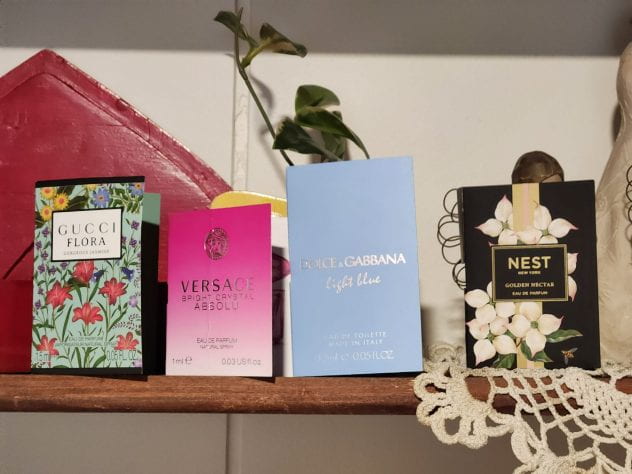
I’m having a hard time choosing between the final four. I like them all, so it doesn’t really matter which one I choose! I’ll go to Sephora soon and commit to one.
